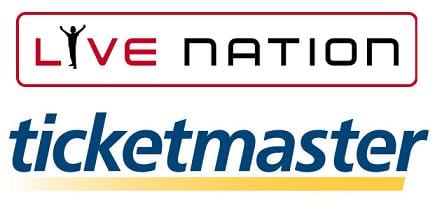
It was no joke on April Fool’s Day when The New York Times reported in a major front page story that the U.S. Department of Justice has launched an investigation into Live Nation/Ticketmaster and its alleged monopolistic abuses throughout the concert industry. The Times also reports that Live Nation/Ticketmaster may be in violation of the consent decree it agreed to as part of its 2010 merger with Live Nation (a merger that was opposed by the National Association of Ticket Brokers (NATB), as well as many economists and consumer rights organizations).
According to The Times, “Justice Department officials are looking into possible cases where parent Live Nation Entertainment Inc. pressured venues in Atlanta, Las Vegas, and other cities into using Ticketmaster to sell tickets to those shows or lose the venue business.” Live Nation owns most venues, has management contracts with artists, and through Ticketmaster wants the rights to ticketing and all that can go with it, including fees that are routinely 25 to 50% above the ticket price. Ticketmaster does not hide the fact that it arranges fees to share them with venues, and others. These fees are part of the company’s business model, viewed as an “extension of the ticket price” as its executives have referred to them. Venues that apparently want to consider other options or more competitive offers are sometimes purportedly threatened and in some cases punished by losing shows. And when this happens, the real losers are the fans because it results in missed opportunities and higher priced tickets. The alleged abuses of market power are the kind that most industry insiders weren’t surprised by, but it is good news that the Justice Department is taking the matter seriously and is investigating. Fortunately, there are laws in place to prevent anticompetitive acts by large, powerful players in industries from foreclosing competition in ways that result in raising prices for consumers.
What the wave of reporting did not address this week is the fuller extent of Live Nation/Ticketmaster’s monopolistic reach. As I have said before, the efforts to obtain monopolistic power in the primary market has encroached into the secondary. Indeed for Live Nation/Ticketmaster, the primary ticket market isn’t enough, as the company’s actions clearly demonstrate it wants to commandeer as much of the secondary resale market as it can.
This is happening in many ways, some more conspicuous than others, all the while Ticketmaster tells the public and inquisitive lawmakers and regulators that its actions are aimed at making tickets more accessible for fans. In reality, these actions are part of a carefully designed strategy to stifle competition. Ticketmaster has constrained the supply of tickets through actions like slowing down the sale of tickets during the on-sale or holding back tickets to limit availability. And without any transparency into how few seats are truly made available for any given show, the public is left in the dark competing for a small number of tickets. This tilts the economic scales of supply and demand, artificially driving prices up. For instance, while thousands of fans bemoan Ticketmaster’s new Verified Fan program for causing delays and forcing additional purchases to “boost” the chances of being able to buy tickets, the company brags that it’s a huge financial success.
Live Nation/Ticketmaster is capable of this because the company controls all aspects of the game; the artist, the venue, promotion, ticket distribution, concessions, and more. No one else knows what is truly happening behind the curtain, and this is why the cost of concerts is so much higher year over year.
Turning back to ticket resale, while the company is already active with a growing footprint in the secondary market, the traditional open resale market where tickets are bought and resold based on supply and demand and what fans are willing to pay (or not), is a problem for Ticketmaster. Since the company cannot control the price and fees on competing marketplaces, the mere option for fans to shop around and search for a good deal limits Ticketmaster in the secondary market. So to deal with this conundrum, the company has developed ways to depress its competition while doing it in the name of reducing ticket scams and battling “scalpers.” So far, for the most part, and so long as the Justice Department or state Attorneys General didn’t start poking around, it has worked.
Considering that last year Live Nation/Ticketmaster reported its first $1 Billion year milestone from ticket resale activities, it’s safe to say the desire to control the secondary market will not end. The DOJ has an opportunity to intervene immediately, and prevent from happening in the secondary resale market what is already happening in the primary market.
There should be a bright line between primary and secondary. Just like other product markets, in the primary market for tickets, the original seller sets a price and puts their tickets on sale. Once the ticket is bought and paid for, any resale activity – including how it is resold, on which site or through which company it is resold, and for what price it is resold (which may be higher or lower than the original cost of acquisition), should not be controlled or constrained in any way by the original seller. A car dealership, for comparison sake, cannot require you to resell your car only through that dealership and at a price they control.
Protecting the open resale market is important for consumers. While most of the news about ticket resale and prices is negative, professionals involved in the business know that most of the time fans can get tickets for a very good price. In fact some 40 percent of tickets on the secondary market sell for less than the initial on-sale, so-called “face value” price. Fans appreciate having more than one source to shop from on the resale market. You take away or limit choice, and choke these supply and demand dynamics through restrictions like the ones Ticketmaster imposes when it operates in resale, and it will mean only one thing for consumers – high costs. Higher cost tickets, and more fees. Ticket resale won’t go away, it will be more expensive.
The challenge for the DOJ is that it will be up against an army of very expensive lawyers who are suited-up and ready to head out on to the field of battle. Political capital from campaign contributions and years of lobbying will be leveraged. The company will likely ask its venue operators, promoters, music artists, and others it has under contract to come to its defense in an attempt to make this problem go away. For the sake of every fan’s ability to access and enjoy the concerts they love, and to restore true competition in the market, the DOJ must be able to conduct its investigation and, if warranted, intervene and remedy the situation.




